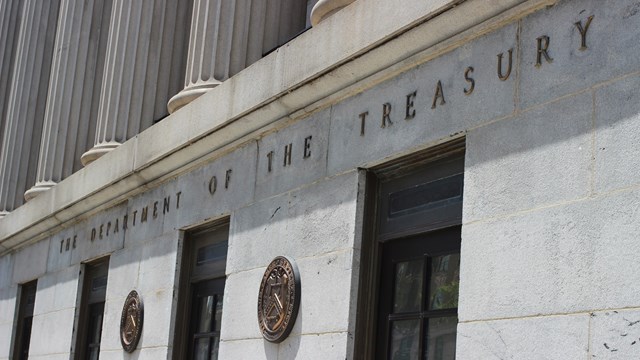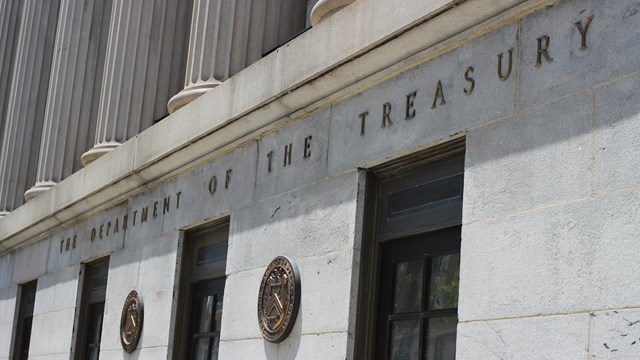As housing sales in the Chicagoland area remain stagnant, legislation both nationally and locally relating to property ownership and management continue to remain active. The majority of the legislation introduced recently has sought to protect homeowners as well as provide more resources for struggling condo and homeowner's associations.
Some of the more noteworthy pieces of legislation and lobbying initiatives include the move to create the Illinois Office of the Condominium Ombudsperson; state mandated training for board members with income tax credits to offset the cost of training; changes to board election procedures regarding proxies; Institute of Real Estate Management (IREM) lobbying the U.S. Congress in support of U.S. House Resolution 940, known as the U.S. Covered Bond Act; and the Community Associations Institute (CAI) teaming up with other housing allies to lobby congressional representatives and the federal government for greater transparency and more public input regrading development of Federal Housing Administration (FHA) lending rules for condominiums.
In the Works
The following legislative initiatives are in the works on the state or federal level.
HB1608 & HB1428 – The Office of the Condominium Ombudsperson.
State Representative Elaine Nekritz, (D-57th District, Northbrook) along with chief-co-sponsor Sara Feigenholtz, (D-12th District, Chicago) have introduced House Bills 1608 and 1428 which would alternatively create the Office of the Condominium Ombudsperson. In HB1608, the advocate would act as a department under the jurisdiction of the Office of the State's Attorney General of Illinois; while under version HB1428, the ombudsperson would be under the jurisdiction of the Department of Professional and Financial Regulation.
The Office of the Condominium Ombudsperson would offer training, educational materials and courses to condominium unit owners, condo associations, condo boards and managers regarding the operation and management of condominium property and the rights and duties of a unit owner or a unit owner's association. If passed the Office of the Condominium Ombudsperson would be required to maintain a statewide toll-free telephone number and a website providing detailed information, as well as assistance in matters relating to condominium properties. Furthermore, the ombudsperson would be required to report annually to the Illinois General Assembly.
In order to pay for the new Office of the Condominium Ombudsperson, the law, if passed, would require that every condominium unit owners association pay an annual fee to the Ombudsperson's office to cover the administration of the act. Additionally, this law would create the Condominium Ombudsperson Fund to be used exclusively for the proper administration of the act.
At present, movers and shakers in the condo community, homeowner's associations and property management companies have yet to express their opinion regarding the creation of this new office. So far, the only organization that has voiced an opinion of support is the Association of Condominium, Townhouse, and Homeowners Associations (ACTHA), but only if the office were to be created under the jurisdiction of the state's Attorney General’s Office.
According to ACTHA's website, the organization does support the idea of creating the Office of the Condominium Ombudsperson but is opposing the legislation as it exists (HB1428) because it places potential jurisdiction under the Department of Professional and Financial Regulation. But ACTHA would offer support if jurisdiction were under the Illinois State Attorney General’s Office. In fact, ACTHA has formed a subcommittee to delve into how the Office of the Condominium Ombudsperson might function. ACTHA is presently seeking members of their organization who might be interested in serving on this committee.
Representative Nekritz told The Chicagoland Cooperator in response to ACTHA's position that, “Creating the department is a necessity and the choice for having the Condominium Ombudsperson under the jurisdiction of the Attorney General’s office is also a necessity and it would appear that the Attorney General’s office is a natural fit.”
Nekritz continued by saying that many voices have yet to be heard regarding this legislation. At present both HB1428 and HB1608 have been re-referred to the General Assembly’s House Rules Committee. “We're anticipating hearings regarding this bill to take place later this year. I'm sure that at that time, more people will express their feelings regarding this,” said Nekritz.
Tax Credit for Condo Board Training
Any condo or homeowners association board member will tell you that education is key to be effective as a board member.
HB172 Condo Training Credit.
This legislation would amend the Illinois Income Tax Act and the Condominium Property Act to provide that a condominium unit owners' association that is created on or after the effective date of the bill require all members of its board of managers to complete a management training seminar.
State Representative Andre M. Thadpei (D-32nd District, Chicago) has introduced this bill to require that board members are properly trained. If passed, the legislation would also entitle board members to a credit against their Illinois Income Tax Liability in an equal amount up to 50 percent of the cost of training.
Andrea M. Sorgani, president of the Illinois Chapter of the Community Associations Institute (CAI-IL) said education is an important part of community association living. “CAI’s position on educating homeowners, board members and those providing management services to community associations is our primary goal,” Sorgani said. “We advocate education which opens the eyes and ears of community association owners with anticipation that the better educated homeowners, the better maintained property.”
While organizations such as CAI-Illinois and ACTHA support this bill, the Illinois Office of Management and Budget (OMB) has recommended that it not be passed because in their opinion it would cause a negative fiscal impact on state coffers. It should be noted though that OMB has been unable to determine the exact negative impact other than the fact that it would reduce state income tax revenue.
Other state departments and Assembly committees have weighed in as well. The Government Forecasting and Accountability committee has decided HB172’s impact would be nominal and not affect the level of state indebtedness. Additionally, the Illinois State Department of Commerce and Economic Opportunity has concluded the bill does not create any state mandates nor pre-empt home rule authority. HB172 has been referred to the House Rules Committee.
Voting by Proxy
HB3337—Condo Proxy Mail Ballot.
In a proposed amendment to the Illinois Condominium Property Act, Nekritz is proposing HB3337. This would allow the bylaws of an association to let a unit owner that cannot vote by proxy in a board election, vote instead by mail. At present this bill is awaiting hearings before the House Rules Committee.
Other Bills
HB1382—Proposed “Statute of Limitations” in Suing Developers for Negligence
House Bill 1382 has been introduced to the Illinois House of Representatives by Representative Kenneth Dunkin (D-5th District, Chicago). This bill, if it is passed, would amend the Illinois Condominium Property Act by setting a time limit in the filing of lawsuits against a developer for a negligent act or omission in the construction, design, planning, supervision, observation or management of the construction of a condominium, condominium unit, or the common elements of a condominium. This would limit the amount of time a unit owner or association would have to file a lawsuit. The law would stipulate that a unit owner or condominium association must file a lawsuit within four years from the time that the unit owner or condominium association discovered the negligence, or should reasonably have known of the negligence.
The amendment would still allow a unit owner or homeowners association to bring legal action against the developer after the four year time period only if the unit owner otherwise couldn't do so because of a legal disability. In that case, the time limitation would then begin once the disability is removed or is no longer an impediment.
There are exceptions though. The addition of this time limitation would not apply to any legal action stemming from fraudulent misrepresentation by the developer or if a developer fraudulently conceals the negligence which would be the basis of any cause of action. These new time limitations, if passed, would not be retroactive since provisions apply to any legal action that commenced or is pending on or after the date this pending legislation would become law.
This legislation appears to have broad support. ACTHA is among the strongest of supporters of the proposal. “We support legislation that enhances the lives of those residing in condo, townhouse and homeowner associations,” according to ACTHA's website.
Presently this legislation has been assigned to the House Judiciary Committee and has also been re-referred to the House Rules Committee. Hearings regarding this pending legislation will probably not take place until after the summer legislative recess.
Smoking Ban Redux?
In the immediate past legislative session, the 96th Illinois General Assembly, legislation was introduced which would have provided that an association's bylaws restricting the use of the units may include prohibitions on smoking tobacco products. In spite of support, namely from the CAI-Illinois Legislative Action Committee (CAI-IL), the measure failed to pass, having never even come to a vote before the end of the Assembly session.
As tobacco smoking continues to be a hot-button issue nationally, a fact recently played out in New York City where a ban was imposed on cigarette smoking in the city's public parks; and where one high-rise condominium on the city’s Upper West Side voted to change the bylaws effectively banning cigarette smoking not only in all common areas but also in individual apartments and imposing a fine—it seems to be only a matter of time before this bill is re-introduced. So far in the current legislative session, the 97th Illinois General Assembly, this legislation has yet to be introduced, but we understand that a new version of this bill will be introduced shortly. The Chicagoland Cooperator will continue to follow this story.
Action by IREM
The Institute of Real Estate Management (IREM) has been sending letters to members of Congress in an effort to promote legislation that would extend terms for commercial mortgages. According to Chuck Achilles, vice president of legislation and research for IREM, this would benefit small businesses and property managers who have been hit hard by the recent economic downturn.
“We’re encouraging Congress, the Fed and the Treasury to approve legislation that would enable bank regulators to extend mortgages if they're current,” Achilles said.
IREM has also voiced its support for U.S. House Resolution 940 (H.R. 940), which has gotten political support from both sides of the aisle and was jointly sponsored by U.S. Representatives Scott Garret (R- NJ) and Carolyn Maloney (D-NY).
H.R. 940, the United States Covered Bond Act of 2011, would create oversight regulation for covered bonds as well as establish standards for covered bond programs. The bill is currently in the hands of the House Financial Services, Subcommittee on Capital Markets and Government Sponsored Enterprises and the resolution is also being reviewed by the powerful House Ways and Means committee.
Covered bonds, which have existed in Europe for many years, would allow financial institutions to float bonds to finance commercial real estate, providing an alternative source of refinancing property administrated by property managers, Achilles said.
Another piece of legislation that IREM has its eye on is Senate Bill 509 (S. 509) or the Small Business Lending Enhancement Act of 2011, which would extend the ability of credit unions to lend money for properties. It would also raise the cap to allow credit unions to loan up to 25.5 percent of their total assets. Presently, legislation only allows credit unions to lend a maximum of 12.25 percent of its assets for real estate usage (as dictated under the Federal Credit Union Act). This bill is currently being discussed by the Senate committee for Senate Banking, Housing and Urban Affairs.
CAI Aligns to Push FHA on Condo Rules
Last month, CAI, IREM, the National Association of Home Builders (NAHB) and the National Association of Realtors (NAR) united in calling for greater transparency and opportunity for public input into the development of FHA lending rules for condominiums. In addition to calling for greater public input, the group united in specific recommendations on key elements of the FHA Condominium Insurance Program.
Specifically, CAI and its allies believe that FHA’s process of developing guidance for the condominium approval process lacks adequate public input and as a result has adopted criteria that are not always the best measure of a condominium association’s financial health. Additionally, since issuing the initial changes to the condominium approval process, the FHA has made no less than eight policy changes. Most recently FHA waived the ban on rental restrictions. While such changes are welcome, the ever evolving standards have been the cause of confusion for associations and lenders as well as FHA staff reviewing applications.
In addition to process issues, CAI and its allies have called on the FHA to revise six criteria that they consider problematic. These are owner-occupancy requirements, FHA loan concentration requirements, pre-sale requirements, investor ownership percentages and assessment delinquency criteria. It is hoped that FHA will take the recommendations on process and criteria under consideration as it moves to issue major revisions of the condominium guidelines at the end of June.
“Decisions that Congress and federal agencies are making today will determine the marketability of homes and availability of financing for years to come,” says Andrew Fortin, CAI’s vice president of government and public affairs. “To some, these issues may seem like bureaucratic, inside-the-beltway details, but these very issues will affect the viability of tens of thousands of homeowner and condominium associations and the value of millions of homes within them.”
Rosie Powers is a freelance writer and reporter living in Chicago and a frequent contributor to The Chicagoland Cooperator. Associate Editor Liam P. Cusack contributed to this article.







Comments
Leave a Comment